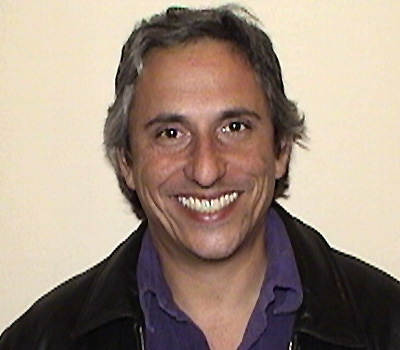Shedding light on important public health issues and fundamental scientific principles
Dr. Geoffrey Ghose, of the University of Minnesota, studies the visual system to understand the physiological basis of cognitive attributes that are most critical for our distinct abilities. While the importance of understanding such basic scientific issues is important in its own right, Dr. Ghose's research also sheds light on important public health issues that arise due to the profound and severe effects that many neurodegenerative and developmental disorders have on higher cognition including Autism and Alzheimer's.
Dr. Ghose's studies of neuronal circuits underlying cognitive phenomena is aimed toward understand what changes in our brains when we learn a new ability, how attention enables us to do things we could not do otherwise, and how we are able to make decisions quickly and accurately. Dr. Ghose hopes to use his research to develop new experimental and computational approaches to understanding brain function. He currently uses recording and stimulation of neuronal populations, precise behavioral measurements, imaging techniques, and computer simulations towards understanding the physiological circuitry and signals responsible for the cognitive abilities which define who we are and what we can do.
Current focus areas include:
-
Attention: Dr. Ghose hopes to better understand how we can flexibly and accurately shift our attention. In order to do so, he studies both monkeys and humans while they are performing demanding visual attention tasks. Through both electrophysiological recordings and imaging he then studies how attention alters the representation of information in visual cortex and improves performance. Dr. Ghose's basic research may help in development of both behavioral and pharmacological therapies for those suffering from attention related disorders such as attention deficit disorder (ADD) and autism.
-
Learning: Dr. Ghose and his team study the learning process by training monkeys over the course of days or months to perceive subtle changes in their visual environment. For example, in one study, after such training, monkeys are able to identify the shapes in a noisy visual background accurately and more quickly. His lab is testing the theory that such learning arises from changes in a relatively small population of neurons form that are increasingly relied upon during the course of learning. Dr. Ghose's basic research may help in development of therapies for those suffering from learning disorders.
-
Decision Making: Dr. Ghose is studying the physiological basis of time-constrained decision making. His research suggests that such decisions rely on specialized neurons which are particularly reliable and temporally precise and ignore neurons with relatively unreliable information. Dr. Ghose's basic research into the coding of information underlying decision making may help in the development of effective prosthetics for those will peripheral sensory or motor damage.
Bio
Dr. Geoffrey Ghose describes the brain as the ultimate frontier because it defines everything that we call human: society, art, exploration, science. For him, the brain is an immense challenge that makes everyday an exciting opportunity. In his spare time, he enjoys photography and staying active. In fact, he has recently taken up snowboarding to enjoy the cold winters in Minnesota while keeping busy!
Website: http://www.ghoselab.cmrr.umn.edu


